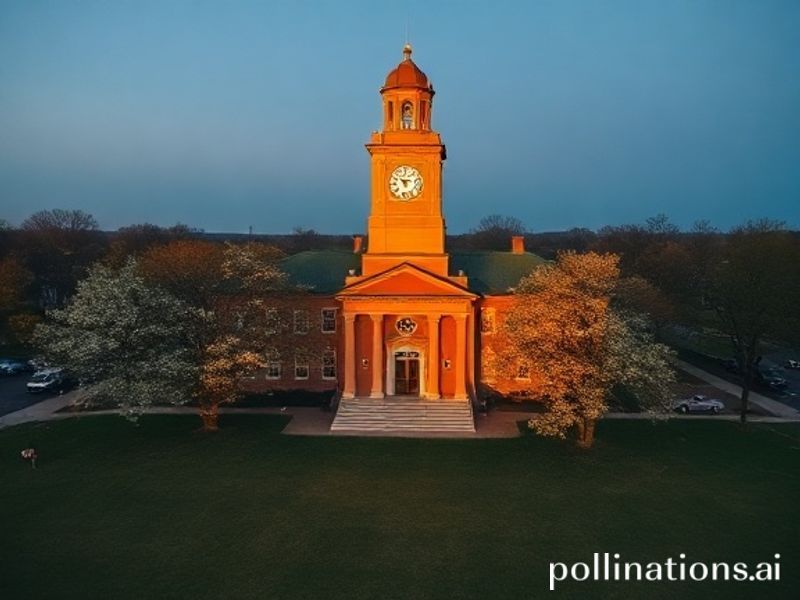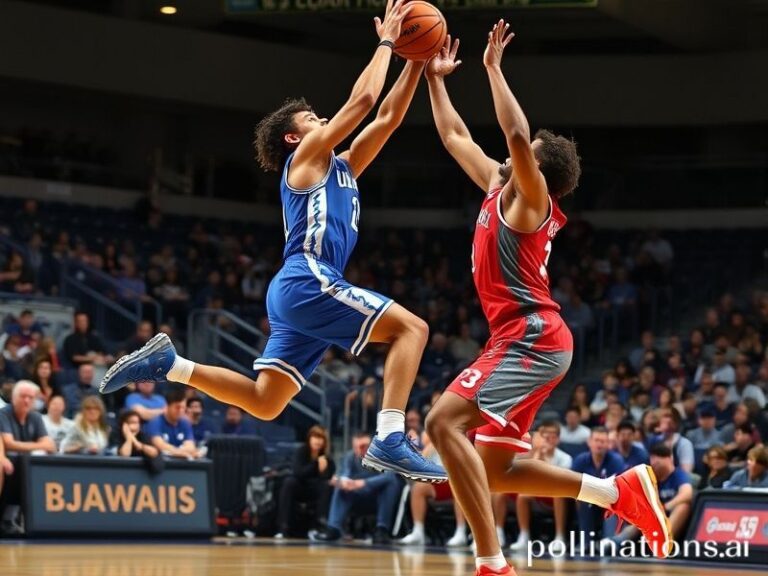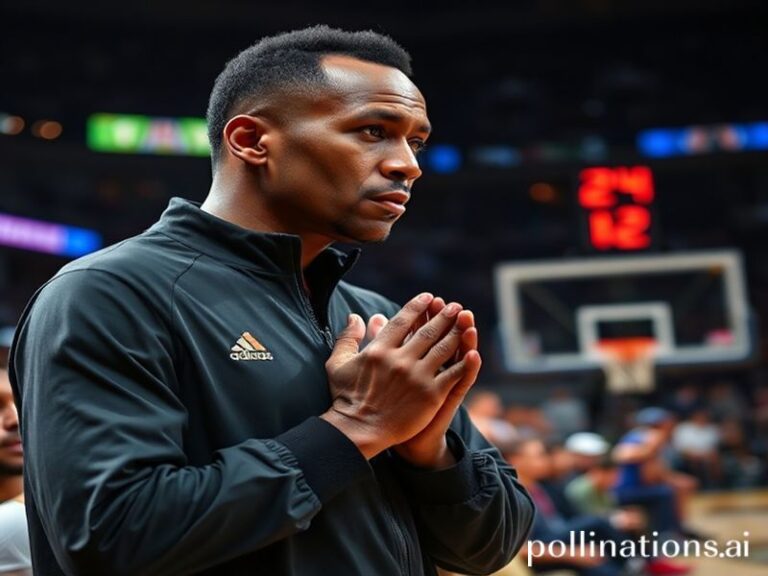Virginia State University’s Global Warning: How a Small HBCU Became a Canary in the World’s Higher-Ed Coal Mine
Virginia State University, an HBCU founded in 1882 in Ettrick, sits roughly 6,700 miles from the nearest Russian artillery position in Donetsk, 4,300 miles from the nearest Chinese rare-earth mine in Inner Mongolia, and precisely one algorithmic click away from every bored teenager on the planet. Yet the institution’s latest convulsions—budget shortfalls, enrollment dips, and a student body staging the kind of protests that look quaintly analog against the glow of TikTok revolutions—have rattled diplomatic WhatsApp groups from Pretoria to Pretoria-adjacent. Why, you ask, should anyone outside the greater Petersburg metropolitan area care? Because VSU is a canary in the global higher-education coal mine, and the canary just coughed up tenure-track feathers.
Let’s zoom out. Worldwide, universities are being asked to moonlight as hedge funds, mental-health clinics, immigration offices, and, on slow Tuesdays, minor-league sports franchises. From the Sorbonne to Seoul National, administrators wake up screaming about “demographic cliffs,” while governments treat education budgets like an optional streaming service they can cancel anytime. Virginia State, chronically underfunded since Reconstruction politely forgot to reconstruct very much, illustrates what happens when austerity meets legacy obligations. When VSU trims faculty lines, the ripple hits Accra, where a Ghanaian graduate student now reconsiders whether American graduate school is worth the indignity of instant ramen futures. Meanwhile, an Indian ed-tech unicorn tracks VSU’s online enrollment numbers the way traders eye soybean futures—because if America’s public HBCUs stumble, the global market for affordable, credible degrees just sprouted a vacancy sign.
VSU’s existential drama also plays like a morality play for the Global South. Kenya’s newest public university, hastily erected to absorb a youth tsunami, watches VSU’s deferred-maintenance backlog and whispers, “There but for the grace of Chinese infrastructure loans go we.” Brazil’s federal universities, currently being starved by Bolsonaro’s ideological heirs, nod grimly: budget cuts dressed up as “modernization” look the same in Portuguese or English. Even the Brits, busy monetizing their remaining academic reputation into £9,000-a-year visa farms, peer across the Atlantic and feel that special colonial cringe: the empire’s former jewel, the American research university, reduced to GoFundMe campaigns for lab equipment.
Of course, VSU’s problems arrive gift-wrapped in distinctly American absurdities. The state legislature, fresh from banning critical race theory in K-12 classrooms, now wonders why Black students aren’t flocking to a campus literally built to educate their grandparents after the Civil War. Somewhere in Brussels, a Eurocrat sipping espresso spits it out laughing: you defund the study of systemic racism and then act shocked when the system performs as designed. The irony is thick enough to spread on Belgian waffles.
Still, VSU fights back with the stubborn optimism that only the historically oppressed can afford. Its alumni network stretches from Pentagon war rooms to Nigerian oil rigs, each graduate a tiny embassy reminding the world that education is still the most subversive import-export business on Earth. When the marching band’s drumline drops a beat on YouTube, Seoul subway riders nod unconsciously; the algorithm, that great flattening force, doesn’t distinguish between Ettrick and Gangnam. Soft power, it turns out, can wear a Trojan-orange uniform.
Globalization giveth and taketh away. VSU’s woes are local, but the forces grinding it down—neoliberal austerity, demographic panic, digital disruption—are as universal as bad airport Wi-Fi. If the university folds into a satellite campus of some better-heeled neighbor, the world loses more than a football rivalry; it loses a node in the fragile lattice that lets a kid from Southside Virginia trade ideas with a coder in Nairobi. And once those nodes start winking out, the internet starts to look less like a nervous system and more like a graveyard of dead links.
So yes, Virginia State University is a small, underfunded school on the Appomattox River. But in the grand bazaar of global higher ed, its collapse would be felt like a currency devaluation—quietly, everywhere, and just when you thought your intellectual savings account was safe. The canary hasn’t died yet, but it’s definitely googling “respirator discounts for birds.”







